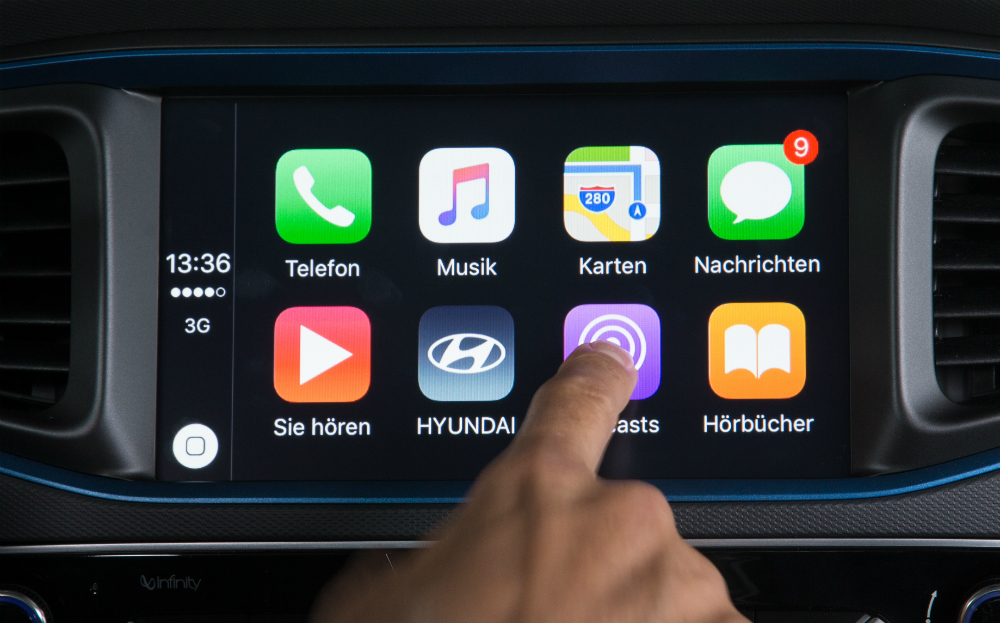Apple car project reportedly cancelled as tech firm shifts focus to AI
Company walks away after a decade of work
Tech company Apple has cancelled its self-driving electric car project after a decade of work, according to reports citing internal sources.
Bloomberg yesterday (February 27) reported that almost 2,000 employees working on the project had been informed, but those who leaked the news to the publisher said they didn’t want to be identified.
The sources said that the decision was made by COO Jeff Williams and vice-president Kevin Lynch, who oversaw the vehicle’s development.
Apple originally began work on its electric car in 2014, with a plan to build an autonomous vehicle with a voice-activated navigation system and a luxurious interior. However, Apple itself was coy about its project, which was believed to be run by the ambiguously named Special Projects Group.
Despite working on the car for ten years, Apple was yet to demonstrate any prototype and was rumoured to be some way from bringing a vehicle to market.
Real-world testing was underway
However, Apple had been performing road tests of its autonomous systems since 2017 using Lexus SUVs as a basis. The company is understood to have registered dozens of test vehicles in the US and has evaluated other components on a former Chrysler test track in Arizona.
Bloomberg said the company had discussed delaying the car’s release to 2028 and removing some of the autonomous driving features, but instead the project has been canned. Williams and Lynch told the workforce that many of those currently in the car division are set to move to the artificial intelligence (AI) department.
However, with the Apple car team also including hundreds of vehicle designers and hardware engineers, it’s unclear whether they will be able to apply for jobs on other Apple teams.
Layoffs are expected, Bloomberg reported, but there’s no word on how many employees will be made redundant.
Driving.co.uk has contacted Apple for comment but has not yet received a response.
Changing market conditions
It’s thought that Apple’s move is a reaction to a changing market, with a growing interest in AI for consumer products, and demand for new electric vehicles (EVs) — particularly among private buyers — below forecasts. Over in the US, both Ford and General Motors have postponed their plans to increase EV production, and electric truck maker Rivian last week confirmed it would slash its workforce by 10 per cent because it did not expect growth in production in 2024.
Even ever-popular Tesla last month warned its sales “may be notably lower” in 2024 than they were in 2023.
The slump in demand has been blamed on high initial costs, high interest rates for finance deals and, in the UK, the delay in the introduction of the ban on new combustion cars to 2035 and the removal of government incentives such as the plug-in car grant. Slashed prices from firms may also be contributing to private buyers holding off making a purchase; yesterday Cupra announced a significant price cut for its Born electric hatchback.
There has also been growing scepticism about autonomous vehicle technology after a number of high profile incidents in America. California recently revoked the licence of operator Cruise, owned by GM, and Waymo has been under intense scrutiny after a pedestrian was pushed into the path of one of its vehicles in a hit and run incident, and then dragged 20ft along the road as the car pulled over.
Apple shifts focus to AI
It’s thought Apple’s most senior executives finalised the decision in the past few weeks, with the news affecting staff who list other businesses from across the car industry on their CVs. The design team included former Aston Martin, Porsche and Lamborghini employees, for example.

With the decision to cease development, the closest Apple has got to the car industry is now the CarPlay smartphone integration software, which allows drivers to access iPhone features through their car’s infotainment system. Development of that tech continues, and Apple is currently redesigning the software to integrate more closely with vehicles.
Bloomberg’s intelligence analysts Anurag Rana and Andrew Girard suggested the pivot to AI development is likely to be more profitable for the business.
“Apple’s decision to abandon electric cars and shift resources toward generative AI is a good strategic move,” said the pair in a note, “given the long-term profitability potential of AI revenue streams versus cars.”
Related articles
- If you were interested in the news that Apple has canned its plans to make an electric car, you may want to read about warnings to Tesla owners seen driving while wearing the Apple Vision Pro headset
- Tesla plans affordable all-new car for 2025
- Elon Musk’s Tesla Cybertruck claims undone by engineer in YouTube video
Latest articles
- Watch new Porsche 911 GT3 smash Nürburgring record for manual cars
- Skoda Elroq 2025 review: Czech carmaker can’t seem to miss with its electric family cars
- Five best electric cars to buy in 2025
- Should I buy a diesel car in 2025?
- F1 2025 calendar and race reports: The new Formula One season as it happens
- Zeekr 7X AWD 2025 review: A fast, spacious and high tech premium SUV — but someone call the chassis chief
- Denza Z9GT 2025 review: Flawed but sleek 1,062bhp shooting brake from BYD’s luxury arm
- Extended test: 2024 Renault Scenic E-Tech review
- Best-selling cars 2025: The UK’s ten most popular models of the year so far














